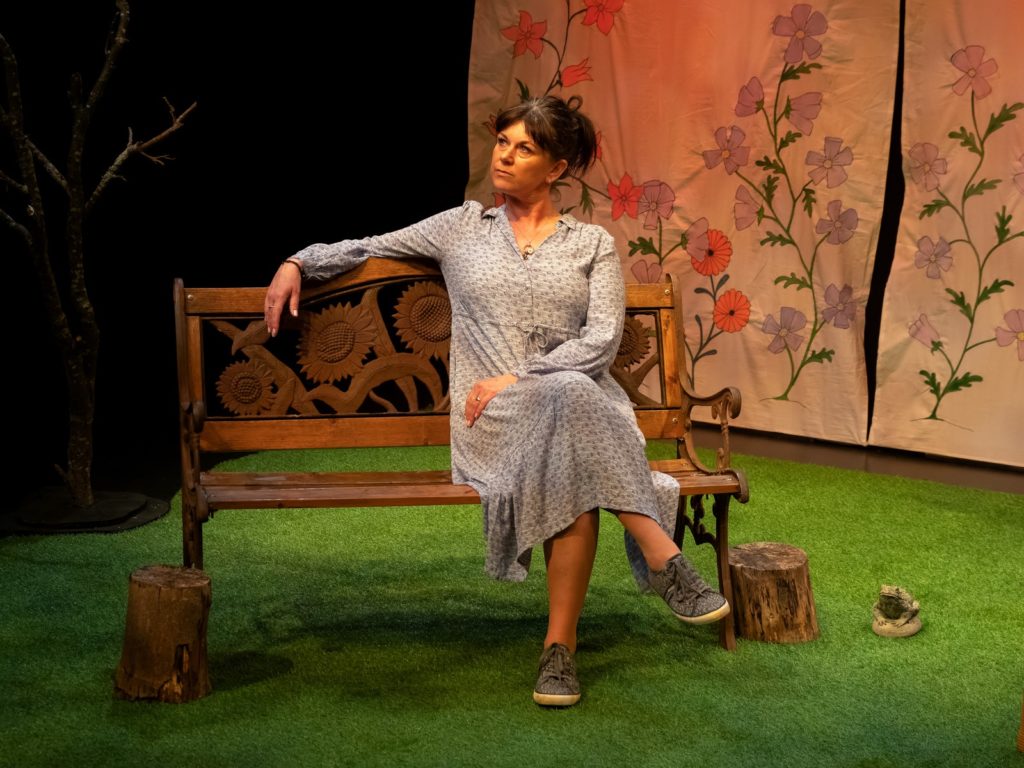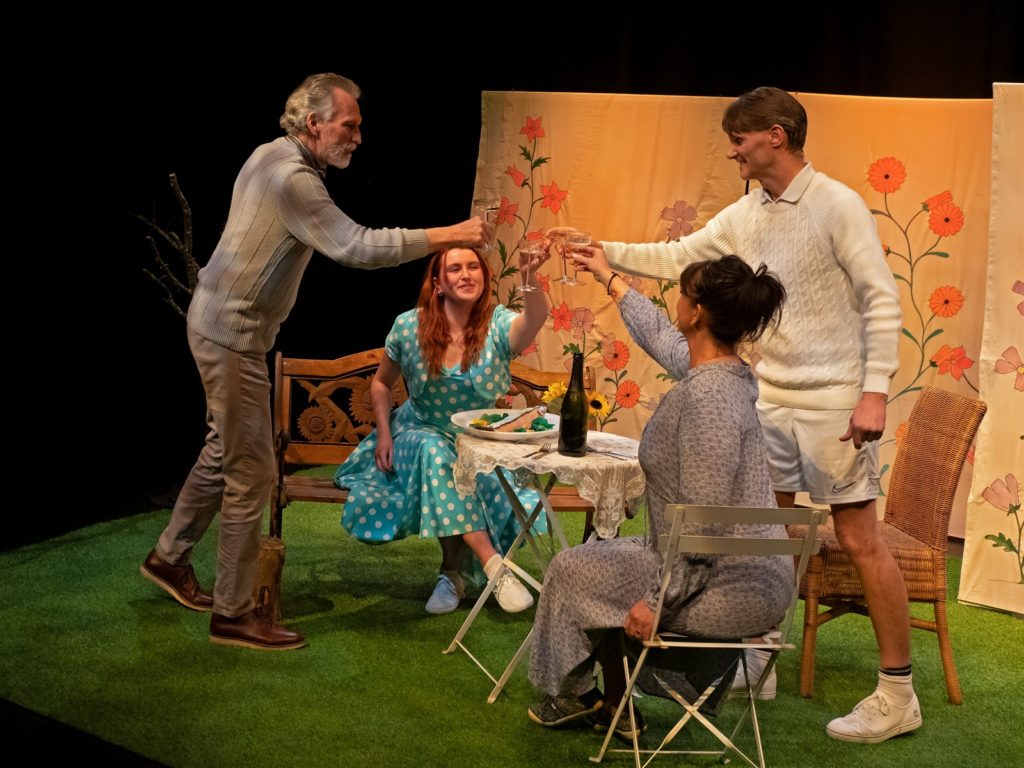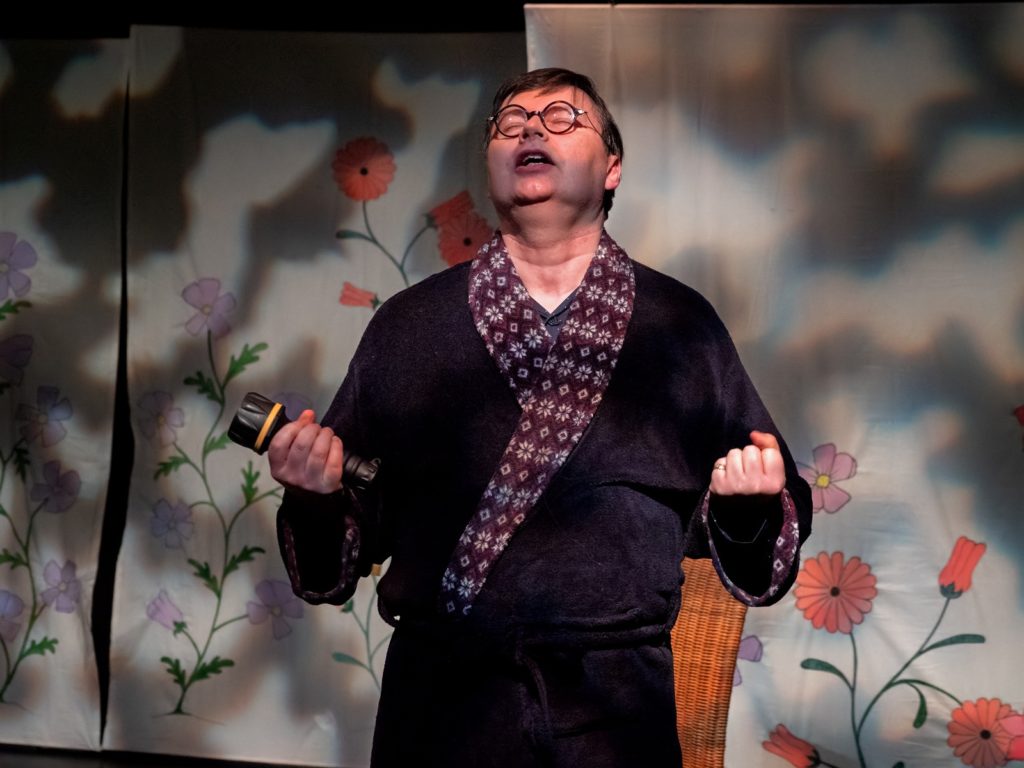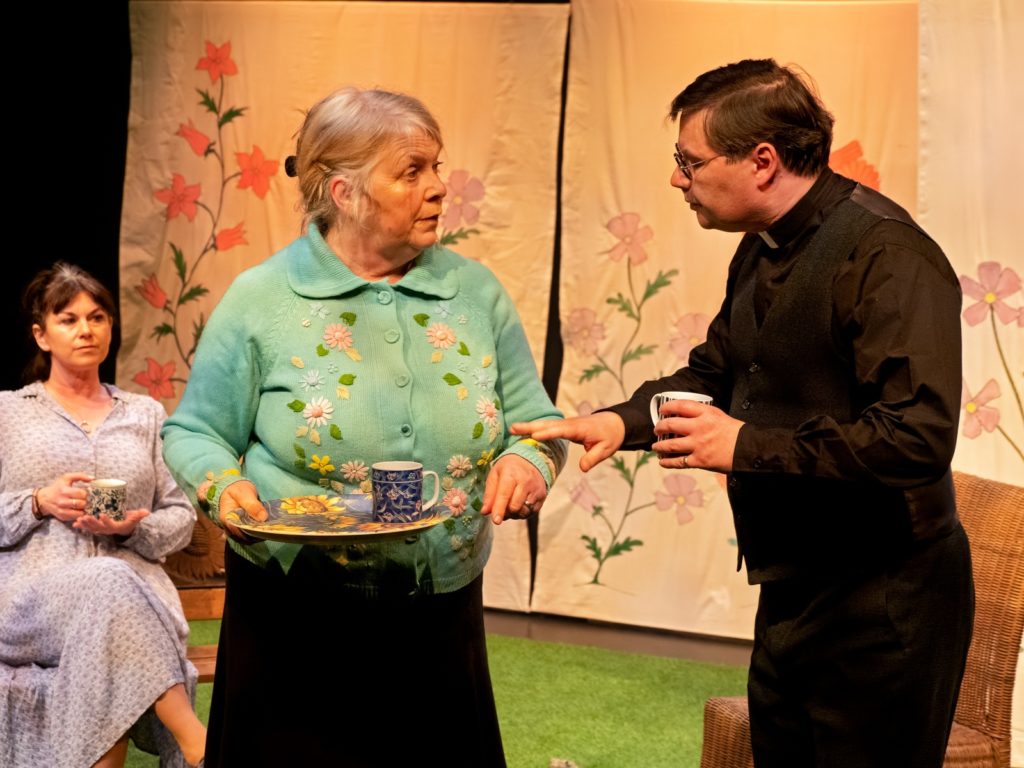
Woman In Mind, York Settlement Community Players, York Theatre Royal Studio, until Saturday, 7.45pm and 2.45pm Saturday matinee. Box office: 01904 623568 or at yorktheatreroyal.co.uk
ANGIE Millard “seemed to have avoided Alan Ayckbourn” in her past directorial choices, but she had one play in mind for the Settlement Players’ return to York Theatre Royal after two years.
Ayckbourn’s sad, haunting, darker than dark-humoured psychological drama Woman In Mind had struck a chord in the pandemic climate of isolation and mental health issues.
Premiered in 1985 but still feeling present day in 2022, it remains Ayckbourn’s supreme study of a trapped woman, older than Nora in A Doll’s House but just as affecting as the desperate flight of Henrik Ibsen’s proto-feminist, Susan’s story being told from inside her woozy head.
The setting is 48 hours in her south London garden and beyond: the place where the world is refracted through the prism of Susan’s psyche.

Following in the footsteps of Julia McKenzie, Stockard Channing and Helen Mirren, in her first stage role since October 2019, Victoria Delaney opens the play on her back and never leaves the stage (interval aside).
Delaney’s suburban housewife is coming round from unconsciousness, after knocking herself out when stepping on a garden rake, as Chris Pomfrett’s cautious yet accident-prone family doctor, Bill Windsor, attends to her. In a brilliant Ayckbourn conceit, his words, like her vision, go from a gobbledygook blur to being clear.
With the bang on the head comes the comforting concern of her champagne-golden family, as if torn from a Mills & Boon cover or a desirable clothes catalogue: first, handsome old devil husband Andy (Paul French); then tennis-playing brother Tony (Neil Vincent) and her auburn-haired darling of a daughter, Lucy (YSCP debutante Amy Hall).
Too, too perfect, surely, and yet played as straight down the line as Tony practising a backhand winner, they could – at first at least – be real. We see and hear them, just as Susan sees and hears them, but only she does so, just like only urbane novelist Charles Condomine and the audience see and hear his deceased first wife, Elvira, in Noel Coward’s Blithe Spirit.

The grim reality is very different: husband Gerald (clergyman’s son Paul Toy) is a self-obsessed priggish vicar, always in another room writing his interminably dull, interminably long parish history since 1387. They have reached the separate bed stage already.
Live-in sister-in-law Muriel (Helen Wilson) is obsessed with reconnecting with her late husband and is forever making foul-tasting beverages and even fouler meals, defeated by the lack of labelling on kitchen ingredients.
Wastrel son Rick (YSCP newcomer Frankie-Jo Anderson) is estranged and strange, having joined a cult in Hemel Hempstead, but suddenly he arrives with news.
Where once Susan loved being a wife and mother, now she is neglected by husband and son alike and unfulfilled in her humdrum, loveless domestic domain, Symbolically, the garden plants in Richard Hampton’s design are reduced to twigs, with the only flowers being on the backdrop tapestries, Susan’s bench and Muriel’s cardigan. What lies ahead beyond Susan’s disillusioned forties, her days as frustrating and stuck as a buffering laptop screen?

Ayckbourn, and in turn Millard and Delaney, capture a “woman on the verge”, and as the real and unreal worlds collide increasingly beyond her control, so too do the ever-blackening humour and pathos, her sanity crumbling and the words returning once more to gobbledygook.
Delaney’s performance is deeply unsettling, her Susan being full of vulnerability, waspish of tongue, her mind grasping desperately at the cliff’s edge, happiness out of reach.
Pomfrett, in particular, provides the comedy, perfectly in step with Ayckbourn’s rhythms; Toy makes the supercilious vicar utterly unbearable but splendidly sets himself up for laughter at his expense; Wilson judges just right how to be annoying yet not annoying as the never-wanted-where-she-is Muriel. Anderson’s disingenuous Rick would fall out with anyone.
French, Hall and Vincent are perfectly well cast as the fantasy family that gradually turns into a nightmare and Woman In Mind becomes a woman out of her mind.
Angie Millard was right: Ayckbourn’s play has indeed taken on even more resonance under the pandemic microscope, where already unhappy marriages have cracked under the strain and the desire to escape has been heightened in enforced isolation.
